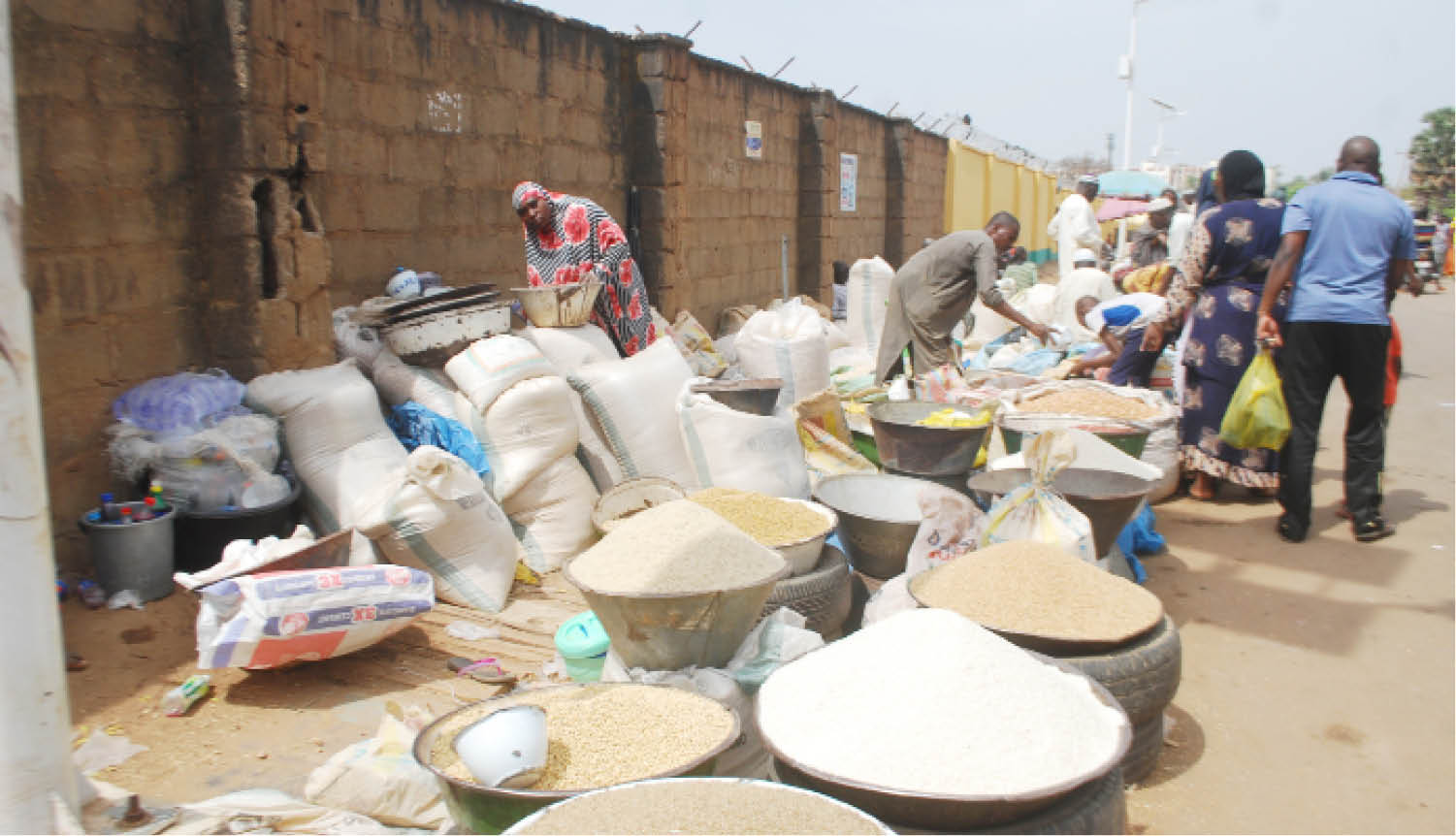COVID-19: Food security crisis imminent in Nigeria – Experts
Food security crisis may hit Nigeria as a result of the impact of the coronavirus pandemic on the agricultural sector, experts have said. This was the summation of the perspectives of panelists on agricultural security at the BusinessDay National Conversation on Mapping Nigeria’s response to COVID-19 held virtually, a statement from the organisers said on […]

FILE PHOTO: The food stuff section of Kawo Market in Kaduna
Food security crisis may hit Nigeria as a result of the impact of the coronavirus pandemic on the agricultural sector, experts have said.
This was the summation of the perspectives of panelists on agricultural security at the BusinessDay National Conversation on Mapping Nigeria’s response to COVID-19 held virtually, a statement from the organisers said on Sunday.
The session with the theme ‘Safeguarding the Nation: Agricultural Credit and National Food Security in an Economic Downturn’ drew participants from both the private and public sectors, the statement added.
In her opening remarks, the Head of Corporate Affairs and Communications Africa at Upfield Foods, Motola Oyebanjo, said conversations around improved food security and systems must be prioritized, particularly now that COVID-19 haD impacted socio-economic activities on a global scale.
Commenting on the need to have sufficient food reserves across the country, Vice Chairman, Dangote Foods, Sani Dangote, said Nigeria needed to concentrate on building strategy towards food security by looking at the particular grain or produce that could sustain the country in case of shortage or pandemic.
The Managing Director of the Nigeria Incentive-Based Risk Sharing System for Agricultural Lending, Aliyu Abdulhameed, said the agency was working with the Central Bank of Nigeria to provide guarantees for farmers and other technical support that they may require for a good harvest.
Co-founder, Sahel Consulting, Ndidi Okonkwo-Nwuneli, said there had been issues in the agricultural sector pre-COVID-19.
However, adding that “now that those issues have been further exposed, there is a greater need for collaborations across all relevant sectors.”
